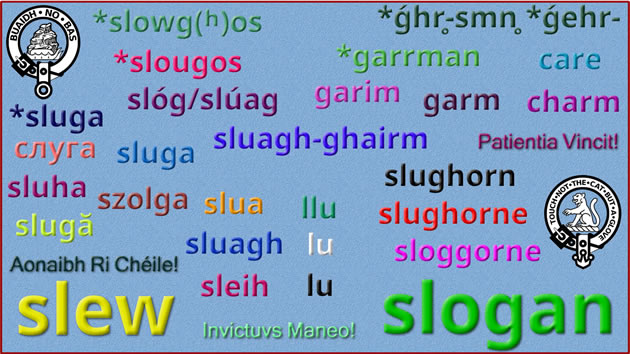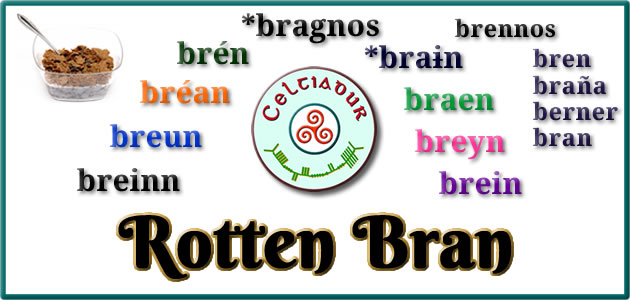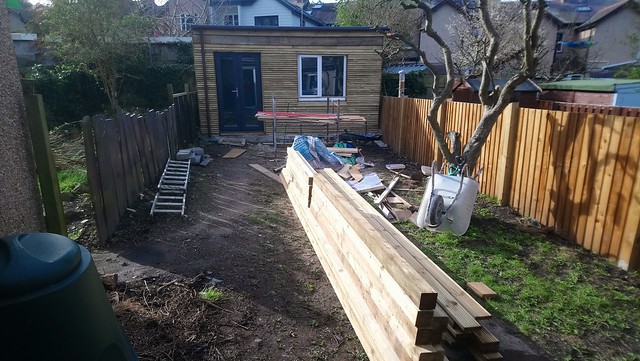Podcast: Play in new window | Download
In this episode we’re looking into the Celtic roots of the words slogan and slew.

In English the word slogan means a distinctive phrase of a person or group of people, a motto, a catchphrase, and formerly, a battle cry used by the Irish or by Scottish highlanders [source].
In the past it was written sloggorne, slughorne or slughorn, and it comes from the Scottish Gaelic sluagh-ghairm [ˈsɫ̪uəɣɤɾʲəm] (battle cry) from the Old Irish slóg/slúag (army, host, throng, crowd), and gairm (call, cry, crow, proclamation) [source].
The Old Irish word slóg/slúag comes from the Proto-Celtic *slougos (troop, army), from the Proto-Indo-European *slowg(ʰ)os (entourage) [source].
Celtic words from the same root include:
- slua [sˠl̪ˠuə] = host, force, army; crowd, multitude, throng in Irish
- sluagh [sl̪ˠuəɣ] = folk, people, populace; the fairy host; crowd in Scottish Gaelic
- sleih = commonalty, crowd, family, inhabitants, people, populace, public, relations in Manx
- llu [ɬɨː / ɬiː] = host, a large number (of people), a great many, multitude, throng, crowd in Welsh
- lu [ly: / liˑʊ] = army, military, troop in Cornish
- lu = army in Breton
Words for family and household in Celtic languages, such as teaghlach in Irish and teulu in Welsh, come from the same Proto-Celtic root, via *tegoslougom (“house army”) [source].
The English word slew (a large amount), as in “a slew of papers” was borrowed from the Irish slua [source].
Words from the same PIE root include слуга (servant) in Bulgarian, Macedonian, Russian, Ukrainian and Serbian; sługa (minion, servant) in Polish; sluha (servant) in Czech and Slovak, slugă (servant, domestic) in Romanian, and szolga (servant, attendant) in Hungarian [source].
The Old Irish word gairm (call, cry, crow, proclamation) comes from the Proto-Celtic *gar(r)man- (cry, shout), from the Proto-Indo-European *ǵh₂r̥-smn̥, from *ǵeh₂r- (to shout, cry).
Celtic words from the same root include:
- gairm [ˈɡaɾʲəmʲ/ˈɡɪɾʲəmʲ] = call, summons, calling, vocation in Irish
- gairm [ɡɤrʲɤm] = calling, crying, call, cry, announcing, declaring, convenning, call of the cockerel in Scottish Gaelic
- gerrym = crowing, outcry, shouting, whoop, whooping, (cock) crow), avocation, mission, profession, vocation in Manx
- garm = shout, cry, outcry, clamour in Welsh
- garm = shout, whoop, yell in Cornish
- garm = cry, clamour, weeping in Breton
Words from the same roots include gáir (cry, shout, report) in Irish, goir (to call, cry, hoot) in Scottish Gaelic, gair (word, speech) in Welsh [more details].
The English words garrulous (excessively talkative), care and charm (sound of many voices (esp. of birds or children), a flock or group (esp. of finches)) as come from the same PIE roots [source].
More details about words for Troop, host, throng can be found on the Celtiadur, a blog where I explore connections between Celtic languages in more depth. I also write about words, etymology and other language-related topics on the Omniglot Blog.
You can also listen to this podcast on: Apple Podcasts, Amazon Music, Stitcher, TuneIn, Podchaser, PlayerFM or podtail.
If you would like to support this podcast, you can make a donation via PayPal or Patreon, or contribute to Omniglot in other ways.












